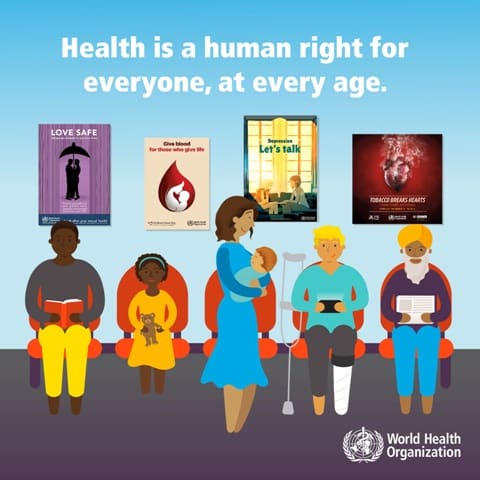
The challenge of healthy ageing
On the World Health Day, AGE reminds of how key this issue is to older people whose right to health is challenged by persisting age discrimination and ageism. The long-term care systems coverage is far from being universal, although they are critical for older persons to live and age in dignity as clearly demonstrated in the World Report on Ageing and Health (WHO, 2015). In 2016, the World Health Assembly agreed that all countries should have a long-term systems as part of their commitment for the implementation of the United Nations’ Sustainable Development Goals.
Still there is a long way to go, starting with the framework used at global level: the indicators listed to monitor the progress of the UN Sustainable Development Goals do not even mention older persons within the goal 3 dedicated to good health and well-being.
Feeding into global policy discussions
At the eve of the 10th session of the UN Open Ended Working Group on Ageing, which will be held from 15 to 18 April, the World Health Day is a unique opportunity to remind of these messages and to contribute to the UN discussions on social protection and social security, as well as continuing to feed in the work started earlier on long-term care.
Last but not least, AGE is very much looking forward to contributing to the preparation of the Decade of Healthy Ageing (2020-2030), which should be the opportunity to make the right to health a reality for all across the lifespan.
For more information:
- WHO website
- European centre for social welfare policy and research, Conceptual note on LTC and Universal Health Coverage, funded by WHO Regional Office for Europe (to be published)
For the dissemination through social media, there is ready made campaign material on WHO website






